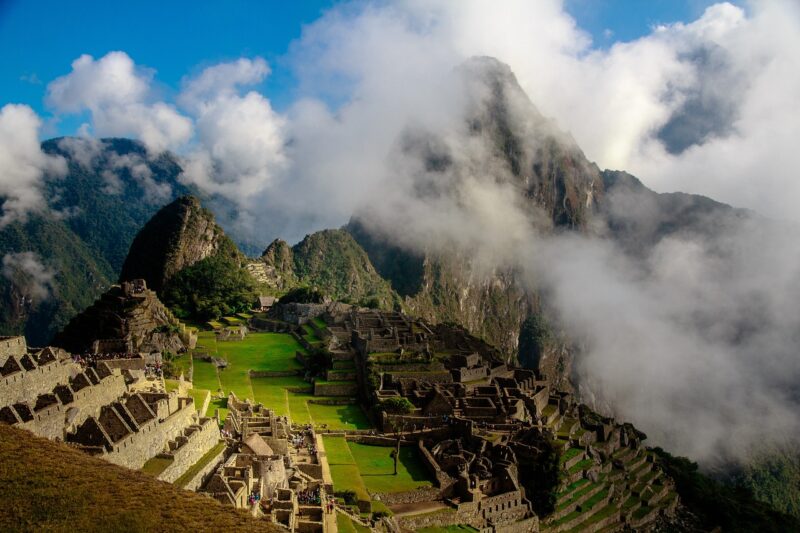Why Understanding Ancient Civilizations Helps Us Decode Modern Politics
November 16, 2024

The study of ancient civilizations is more than just an academic pursuit; it is a vital tool in understanding the complexities of modern politics. From the power dynamics of ancient Rome to the democratic systems developed by the Greeks, ancient societies have set precedents that continue to influence today’s political landscape. In this article, we will explore how historical insights from ancient civilizations can illuminate the practices and challenges of contemporary politics, providing a lens through which we can better understand current events and governance.
1. The Foundations of Governance: Lessons from Ancient Societies
Ancient civilizations established foundational models of governance that shape our political systems today. For instance, the city-states of ancient Greece introduced fundamental concepts of democracy, including the idea of citizens participating in governance.
– **Greece:** The Athenian democracy, despite its limitations (e.g., exclusion of women and slaves), set a precedent for civic engagement and political responsibility. Understanding Athenian politics helps us grasp modern democratic challenges, such as voter participation and political representation.
– **Rome:** The Roman Republic’s intricate system of checks and balances still resonates in contemporary governance. Analyzing Rome’s approach to civil rights and political representation can provide insights into current discussions around power dynamics, particularly in democratic systems.
By examining these ancient frameworks, we understand the essential principles that guide modern political institutions and highlight the continuity of certain governance challenges.
2. The Role of Conflict and Power Shifts in Ancient Times
Power struggles and conflicts have characterized the political histories of ancient civilizations, providing critical lessons for modern geopolitics. The fall of empires, such as the Roman Empire, underscores the impact of internal and external conflicts on political stability.
– **Internal Factors:** Corruption, social inequality, and political infighting played substantial roles in the decline of Rome. Today, we can see parallels in various nations grappling with similar issues that can erode public trust and weaken democratic institutions.
– **External Threats:** Ancient societies faced invasions and conquests, which serve as reminders of the importance of national security in safeguarding a political system. Understanding the strategies employed by ancient civilizations to address external threats can inform modern policies regarding national defense and international relations.
By studying how ancient civilizations navigated conflict, we gain insights into the complexities of modern power struggles and the necessity of effective governance to maintain stability and order.
3. Ancient Civilizations and Social Cohesion
Social cohesion within ancient civilizations often determined their success or downfall. The ability of societies to unite diverse groups under a shared identity was crucial for stability.
– **Cultural Integration:** Ancient Rome’s ability to integrate various cultures through citizenship rights illustrates the power of inclusivity. In the modern context, issues of immigration and cultural diversity continue to challenge governments but can also serve as opportunities for enriching national identities.
– **Rituals and Beliefs:** Ancient societies employed shared rituals and beliefs to foster unity. For modern nations, understanding how to cultivate shared values amidst diversity can enhance social cohesion and political stability.
Thus, the study of ancient civilizations sheds light on the delicate balance of fostering unity while respecting diversity in contemporary governance.
4. The Influence of Philosophy and Political Thought
The political philosophies developed during ancient times laid the groundwork for modern political thought. Philosophers such as Plato and Aristotle explored the nature of justice, governance, and the role of the citizen.
– **Plato’s Ideal State:** His vision of an ideal state raises questions about the role of elites in governance, which resonates in debates about aristocracy, meritocracy, and democracy today.
– **Aristotle’s Political Categories:** Aristotle categorized governments into monarchies, aristocracies, and democracies, offering a framework still relevant in analyzing modern political systems. Understanding his thoughts can help dissect current political ideologies and the variations in governance worldwide.
Exploring these ancient philosophies not only sharpens our understanding of the origins of political thought but also equips us to address modern democratic dilemmas and ideological conflicts.
5. Ancient Civilizations as a Mirror for Global Politics
Ancient civilizations provide a historical mirror reflecting ongoing global political challenges. Modern political entities often echo the patterns of behavior observed in ancient societies.
– **Superpower Dynamics:** Just as ancient empires rose and fell, modern superpowers navigate similar trajectories influenced by economic strength, military capability, and diplomacy. The lessons from the rise and decline of civilizations like Persia and Greece can inform our understanding of current superpower relations.
– **Nation-State Relationships:** The alliances and rivalries of ancient civilizations set precedents for contemporary international relations. Understanding the treaties and conflicts of the past can enhance diplomatic strategies in today’s interconnected world.
By learning from history, we can grasp the complexities and nuances of international politics, improving our approaches to diplomacy and conflict resolution in an increasingly globalized society.
6. Conclusion: Bridging the Past with the Present
Understanding ancient civilizations is essential for decoding modern politics. The governance models, philosophical foundations, and social dynamics that emerged from ancient societies offer invaluable insights into the structures and challenges faced by contemporary political systems.
By recognizing the continuities and lessons from our past, we equip ourselves to address the complexities of modern governance with greater wisdom and foresight. As we engage with current events, let us remember that the past is not merely a record to be studied but a guiding force that shapes our political reality today. Knowledge of ancient civilizations can empower us to create more effective, equitable, and just political systems for future generations.







